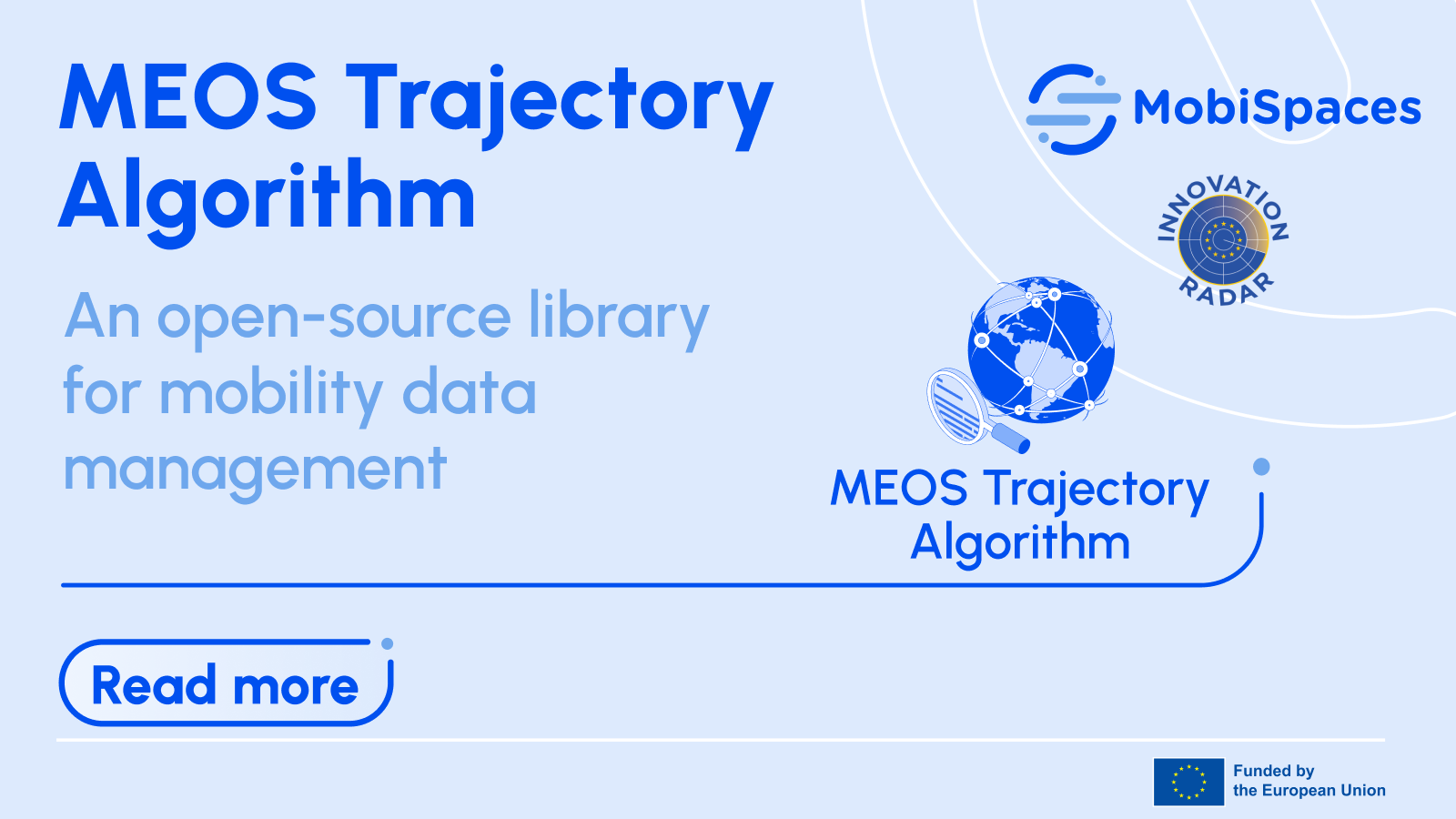
The MEOS Trajectory Algorithm, an open-source library for mobility data management, is an innovation developed under the framework of the Horizon Europe project MobiSpaces. Designed to help decision makers to solve the growing challenges of urban and maritime mobility, this innovative tool is capable of managing data from the increasing number of moving objects in our cities and seas.
Progressing Toward Market Readiness
The MEOS Trajectory Algorithm has been labelled by the EC innovation radar as “tech-ready”, meaning it is well-advanced in development with prototypes and pilot projects underway. To fully unleash its market potential, the focus now should be on preparing for market entry and scaling up its opportunities.
Addressing Global Challenges
This innovation helps to reach multiple Sustainable Development Goals (SDGs), such as:
- Build resilient infrastructure – by promoting reliable and secure data management systems.
- Reduce inequalities – by improving access to efficient transportation and mobility solutions.
- Make cities inclusive and sustainable – by helping urban areas reduce pollution and improve transportation systems.
- Combat climate change – by enabling greener, more efficient mobility options.
The Trajectory Algorithm is being developed by the Université Libre de Bruxelles, a key player in the MobiSpaces consortium and a leading research institute in Belgium.
A Step Toward Sustainable Mobility
Part of the MobiSpaces project, the Trajectory Algorithm contributes to a data governance platform that ensures efficient, secure, and privacy-preserving mobility data management. By providing actionable insights from mobile sensors and IoT devices, this platform supports a range of use cases, including:
- Intelligent public transportation services in urban environments,
- Intelligent infrastructure traffic sensing for smart cities,
- Vessel tracking for non-cooperative vessels,
- Decentralised processing on-board of vessels,
- Enhanced nautical maps via crowdsourced bathymetry vessel data.
For further details on MEOS Trajectory Algorithm and its applications, please refer to the Innovation Radar website